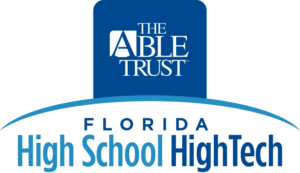Partner Perspectives
Michelle Dennard
Vice President and Regional Executive
Jacksonville Branch of the Federal Reserve Bank of Atlanta
 What is the role of the Federal Reserve?
What is the role of the Federal Reserve?
Created by Congress in 1913, the Federal Reserve is the U.S. central bank. It is responsible for overseeing the nation’s monetary system, ensuring the safety and soundness of the U.S. banking and financial system, providing financial services to depository institutions, and serving as the fiscal agent for the U.S. government.
In my role as the Regional Executive in the Jacksonville Branch of the Federal Reserve Bank of Atlanta, I work to build relationships with business and community leaders by listening to their insights and experiences, with an eye toward collecting and analyzing economic intelligence. Regional executives, like myself, across the Atlanta Fed’s district, which includes Alabama, Florida, and Georgia, and portions of Louisiana, Mississippi, and Tennessee, contribute to the Bank President Raphael Bostic’s monetary policy deliberations through real-time insights into how our communities are experiencing today’s economy.
What do you believe are some of the biggest challenges facing Florida students?
Today’s students will enter a workforce that is amidst some of the most significant disruptions experienced in Florida’s history. Students will thrive in this new environment by continuing to focus on employability skills such as solving problems, taking initiative, and communicating effectively. They will need those skills to be able to lead through the large-scale technology changes happening in our workplaces. By leveraging these skills, students have tremendous opportunities in Florida’s high growth industries, while also having the opportunity to be entrepreneurial and to grow throughout their career.
How does the Federal Reserve work with students and teachers and what types of resources do they provide?
The Federal Reserve offers a wide array of resources for teachers and students. Particularly, the Atlanta Fed aims to equip educators with the skills and tools they need to teach economics, personal finance and college and career readiness. Together with the rest of the Federal Reserve through an initiative called Federal Reserve Education, we offer educators access to grade-level appropriate, classroom-ready economic and personal finance resources. Free resources include infographics, publications, lessons, videos, and online courses and can be accessed via the Bank’s website at atlantafed.org/education, and other resources offered by other Reserve Banks can be found at federalreserveeducation.org. We also love to have visitors! Florida teachers can bring their students to visit our museums in Jacksonville or Miami, where they learn about the role of the Federal Reserve in the U.S. economy, monetary policy, and visit our cash processing department.
With regard to industries that are important to Florida’s economy, and in need of talent, what should Florida students keep in mind as they make decisions about postsecondary education options?
When considering postsecondary education options, Florida students have many options for success. Florida’s business community is expanding and needs skilled talent to enable future growth. Future talent development is often named as the top priority of businesses who provide economic intelligence to the Atlanta Fed. While considering programs that match their abilities and interests, students should talk to leaders in their chosen fields. Many businesses provide opportunities to gain early work experience or career exploration options that can help inform decisions about postsecondary education.
Learn More about
The Able Trust
Youth Programs
High School High Tech (HSHT) provides high school students with all types of disabilities the opportunity to explore jobs or postsecondary education leading to in-demand careers. HSHT links youth to a broad range of academic, career development and experiential resources and experiences that will enable them to meet the demands of the 21st century workforce.
Futures in Focus is intended to support students from grades 9 to 12 (aged 14-22) who have a disability documented by an IEP or 504 Plan.
- Improve participation in education and vocational-related activities leading to increased employment opportunities for middle/high school students with disabilities.
- Connect students to resources that assist them with education and employment pursuits, such as Florida’s Division of Vocational Rehabilitation.
- Increase enrollment in postsecondary education/training.
